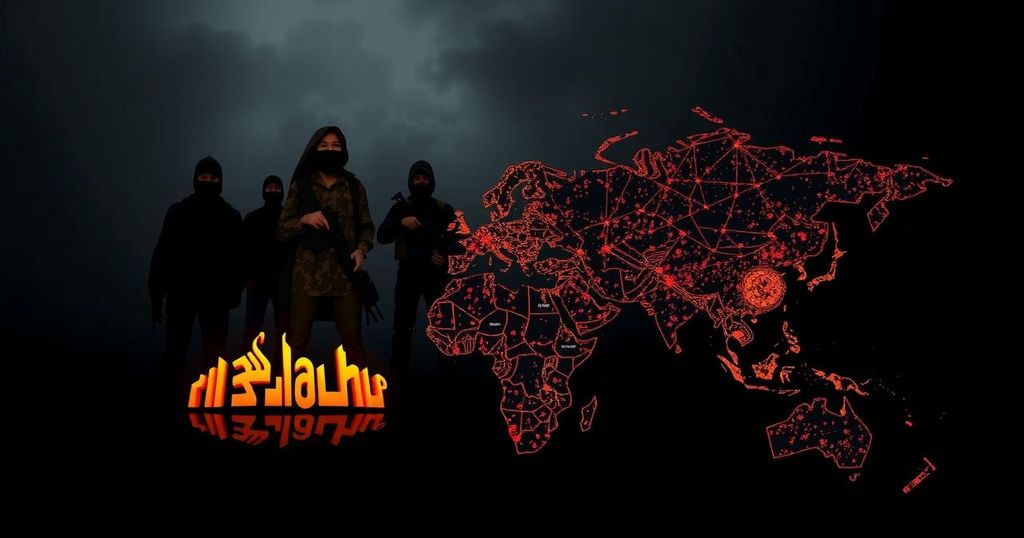Understanding the Operations of the Lakurawa Jihadist Group in Northwest Nigeria
Lakurawa is a new jihadist group operating in northwest Nigeria, specifically in Sokoto State. They enforce strict moral conduct, levy taxes, and force parents to marry off their daughters to group members. Originating from the Sahel region amid political unrest, the group initially suppressed local banditry but has introduced severe restrictions on personal freedoms, causing fear among residents who now feel more threatened by Lakurawa than by state authorities.
Lakurawa is an emerging jihadist group that has established a presence in northwest Nigeria, specifically within four local government areas: Binji, Gudu, Tangaza, and Silame in Sokoto State. The group has garnered notoriety for its aggressive enforcement of moral codes and taxation within these communities, requiring residents to pay Zakah and mandating that parents marry off their daughters to group members. Members of Lakurawa allegedly infiltrated the region from the Sahel, particularly from Niger and Mali, following political instability and a military coup in Niger that disrupted prior cooperation between Nigerian and Nigerien forces. Although they surfaced in the area approximately two years ago, initial engagement with Nigerian security forces proved effective in disbanding their operations. However, recent developments indicate a resurgence of the group, with claims of successfully neutralizing local banditry. An insider reports that the group engages in propaganda, distancing itself from state authorities, and expressing disdain for Western education. Their outreach includes preaching in multiple languages such as Hausa and Fulfulde, which further emphasizes their agenda. Following their return to the region, they initially reduced banditry, leading some villagers to welcome them as protectors. However, this has come with severe restrictions on personal freedoms, including prohibitions against music and certain hairstyles, Additionally, the group reportedly uses intimidation and coercion to recruit individuals, often presenting a facade of authority by tasking residents with identifying and punishing those they deem as transgressors. This dynamic has created an environment of fear, particularly among parents who have been compelled to marry off their daughters to members of Lakurawa. Taxation, particularly in the form of food contributions, has also been imposed, leading to widespread anxiety regarding compliance with their demands. The general sentiment among the affected communities reveals a profound fear of Lakurawa, overshadowing the perceived threat from conventional security forces, as local governance has been effectively undermined, eroding community safety and empowerment.
The emergence of Lakurawa marks a troubling development in the security landscape of northwest Nigeria. The group’s operations illustrate the challenges that local communities face from non-state actors exploiting political instability. With significant ties to armed factions in the Sahel region, specifically Niger and Mali, Lakurawa symbolizes the regional interconnectedness of extremist ideologies and actions. The Nigerian government’s military response has sought to counter such threats, but the group’s capacity to forge local alliances complicates efforts for stabilization.
In conclusion, Lakurawa exemplifies how new jihadist movements can exploit power vacuums and community vulnerabilities to establish control through coercion and violence. Their ability to integrate into local dynamics poses a significant challenge for Nigerian security forces, while the community’s fear of state inadequacy drives complicity. As Lakurawa continues to operate, it raises critical questions regarding effective governance, security policies, and community resilience in conflict-affected regions.
Original Source: www.bbc.com




Post Comment